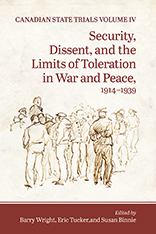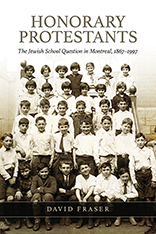(La version française suit ci-dessous)
2016 Canadian Law and Society Association Annual Meeting University of Calgary, Calgary, AB
85th Congress of the Humanities and Social Sciences - Energizing Communities Call for Papers
The program committee of the Canadian Law and Society Association invites submissions for its Annual Conference to be held during the Congress of the Humanities and Social Sciences at the University of Calgary. The theme for Congress 2016, “Energizing Communities,” provides an excellent opportunity for law and society scholars to explore law’s place in community building and the fostering of pluralistic relationships. We welcome proposals for papers in any area of Law and Society and socio-legal scholarship. We encourage participants to submit suggestions for complete panels and roundtables. Panel organizers should include the following in their submissions: a thematic overview of no more than 500 words, abstracts for each paper (250 words or less), a title for the panel, a one page CV for each presenter and a suggested chair or discussant. Individual submissions are most welcome and should include the following: a title, an abstract (250 words or less) and a one page CV. Please indicate in your submission if you are willing to serve as a panel chair. We are open to having a number of panels that focus on particular themes such as legal history, religious freedom, gender & sexuality, law & technology and indigenous legal knowledge. It may be helpful for presenters to know that the CLSA conference will overlap with the Annual Conference of the Canadian Association of Law Teachers on May 30 & 31. There will be a number of events dedicated to graduate students. The conference keynote speaker will be Prof. John McLaren, Professor Emeritus, Faculty of Law, University of Victoria, who will deliver his address at the banquet on May 30. Professor McLaren served as the first Dean of the University of Calgary’s Faculty of Law. Where: University of Calgary, Calgary, AB When: May 28-30, 2016 Deadline: January 31, 2016 Submission information: Please forward panel and paper proposals by email attachment to Nicole O’Byrne, CLSA Vice-President (Conferences) at clsacalgary2016@gmail.com. Please put your last name and the words “CLSA submission” in the subject line. Presenters must be members of the CLSA. They must also register for Congress and pay the Congress fees, including the society fee for the CLSA. Information about registration, accommodation and other Congress activities is available on the Congress website: http://congress2016.ca/
Réunion annuelle de l’Association canadienne Droit et Société (2016)
Université de Calgary, Calgary, Alberta
Le 85e Congrès annuel des Sciences humaines : L’Énergie des communautés
Appel de communications
Le comité des programmes de l’ACDS vous invite à soumettre vos contributions en vue de sa Conférence annuelle qui aura lieu lors du Congrès des Sciences humaines 2016 à l’Université de Calgary. Le thème du Congrès 2016, L’Énergie des communautés, offre une excellente occasion d’explorer la place du droit dans le renforcement des collectivités et le pluralisme communautaire.
Toutes contributions relatives aux disciplines s’intéressant au droit et société, ainsi qu’aux recherches sociojuridiques sont bienvenues. L’Association encourage les participants à soumettre leurs contributions pour des présentations individuelles et des tables rondes. Les organisateurs de tables rondes doivent nous faire parvenir l’aperçu thématique (500 mots maximum), le résumé de chaque présentation (250 mots maximum), le titre de la table ronde, le curriculum vitae (1 page) de chaque orateur, ainsi que le nom d’une personne qu’on propose comme modérateur. Les propositions de présentations individuelles doivent inclurent : un titre, un résumé (250 mots maximum) et un curriculum vitae (1 page). Veuillez aussi indiquer si vous souhaitez siéger en tant que modérateur. L’ACDS accueille tout particulièrement les propositions pour des groupes de discussion portant sur des thèmes reliés à l’histoire juridique, la liberté de religion, le genre et la sexualité, le droit et la technologie, ainsi que les questions juridiques relatives aux autochtones.
Il pourrait s’avérer utile aux personnes qui présentent de savoir que la réunion annuelle de l’ACDS coïncide avec le Colloque annuel de l’Association canadienne des professeurs de droit, le 30-31 mai 2016. De nombreuses activités sont prévues pour les étudiants diplômés. Le professeur émérite John McLaren de la faculté de droit de l’Université de Victoria sera le conférencier principal. Professeur McLaren a été le premier doyen de la faculté de droit de l’Université de Calgary. Sa présentation aura lieu lors du banquet le 30 mai.
Lieu : Université de Calgary, Calgary, Alberta
Dates du Congrès : du 28-30 mai 2016
Échéancier : Le 31 janvier 2016
Format : Toutes les communications doivent être soumises en pièces jointes, par courrier électronique, à Nicole O’Byrne, vice-présidente (conférences) de l’ACDS à clsacalgary2016@gmail.com. Veuillez indiquer votre nom de famille, ainsi que les mots Contributions ACDS dans le champ « Objet ». Pour présenter, vous devez être membre de l’ACDS. Vous devez aussi compléter votre inscription au Congrès et acquitter les frais d’inscription au Congrès, qui comprennent aussi les frais de conférence pour l’ACDS.
Des renseignements supplémentaires portant sur l’inscription, le logement et le programme des activités du Congrès sont offerts sur le site Internet du Congrès à http://congres2016.ca/.




